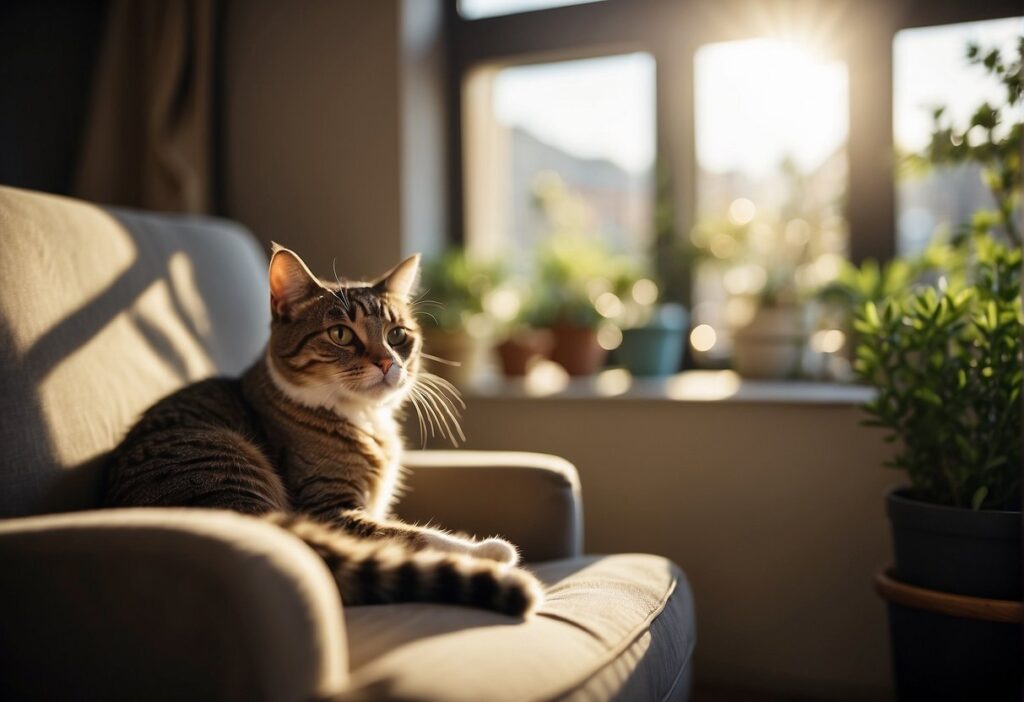Living with depression can often mean searching for ways to alleviate the heaviness of daily mental strain. As you explore various coping mechanisms, you might be surprised to learn that cats have garnered attention for their potential to positively influence mental health. The companionship of a feline friend offers more than just playful distractions; for many, it becomes a source of comfort and emotional support.
Research looking into the effects of pet ownership on mental health has shown mixed results, but there’s notable evidence that the presence of cats can help mitigate feelings of depression in some individuals. The simple act of caring for a cat can instill a sense of responsibility and routine, while their affectionate behaviors may foster a feeling of being needed and loved.
This connection with a pet cat can do more than just brighten your day; it can also contribute to the release of feel-good hormones such as dopamine, serotonin, and oxytocin. These chemical changes in the brain are known to improve mood and could be a reason why cat owners often report lower rates of depression. Even though cats can’t replace professional medical treatments, they might offer therapeutic benefits that complement traditional approaches to managing depression.
The Role of Cats in Mental Health

Cats offer more than just cute antics; they can also play a significant role in improving your mental health. From the comfort they provide to the behavioral cues they offer, understanding how cats impact wellbeing is key.
Companionship and Loneliness
If you’re facing feelings of loneliness, a cat can fill that void with its companionship. Many cat owners appreciate the sense of comfort and presence a cat provides just by being in the same room. According to research, cat owners can experience lower levels of loneliness, partly due to the unconditional love and trust that cats tend to offer.
Cat Behavior and Emotional Support
Cats exhibit some behaviors that can support your emotional wellbeing. For example, their propensity to purr when content can have a calming effect, helping to reduce stress and anxiety levels. Even the simple act of petting a cat can release endorphins, creating a sense of peace and contentment.
Human-Cat Bond and Its Psychological Impact
The connection between you and your cat isn’t just emotional; it’s also backed by research. The Human-Animal Bond Research Institute found that a significant percentage of cat owners report positive impacts on their mental health. This bond can enhance feelings of well-being, support emotional health, and even aid in dealing with conditions like depression.
Benefits of Pet Ownership

Owning a pet, particularly a cat, can have a profound impact on your mental health, providing both emotional support and a reason to maintain a daily routine.
Routine and Responsibility
Establishing a daily routine is a fundamental aspect of managing depression, and pets inherently require a schedule for feeding, cleaning, and exercise. This structure can give you a sense of purpose and make your days more predictable. For example, you’re responsible for feeding your cat at the same time each day, which in turn can help regulate your own activities and priorities.
Physical and Emotional Benefits
Physical Health: Cats encourage playfulness and moments of activity, however brief, which can increase your levels of exercise. This physical activity, even if it’s just playing with your cat, can boost endorphin levels, improving your mood.
Emotional Health: The companionship of a cat can offer significant emotional support. The act of petting a cat can produce calming effects, reducing feelings of isolation and loneliness.
- Improve Mental Health: Engaging with a cat can increase the production of dopamine and serotonin, neurotransmitters that play an essential role in stabilizing your mood.
- Reduce Feelings of Anxiety: The presence of a cat can act as a source of comfort, helping to alleviate symptoms of anxiety and stress.
Cats and the Reduction of Stress and Anxiety
Cats can be particularly effective at providing a calming presence, which might be beneficial for those with anxiety disorders. Their low-maintenance interaction and the quiet comfort they offer can help reduce stress levels. Moreover, the unconditional love and support a cat provides can be a stabilizing force for many people who experience anxiety or stress regularly.
Therapeutic Effects of Cat Ownership
Cats provide a unique form of companionship that often includes stress reduction and a soothing presence. Their role in alleviating symptoms of depression showcases the beneficial interactions between humans and their feline friends.
Purring and Touch
When your cat purrs during petting sessions, you’re not just comforting them; the vibrations of their purring can act as a form of massage therapy for you. Purring has been linked to lowering stress levels and promoting relaxation. Physical touch, such as gentle stroking or cuddling with your cat, can stimulate the release of oxytocin in the brain, known as the “feel-good” hormone. This interaction enhances feelings of affection and comfort.
- Oxytocin Release: Petting a cat → Increased oxytocin → Enhanced sense of well-being
- Stress Reduction: Purring vibrations → Calming effect on humans → Lowered heart rate and stress
Cat-Assisted Activities and Exercises
Engaging in cat-assisted activities, like playing with a laser pointer or tossing a ball of yarn, encourages physical activity. It not only helps your cat stay active but also elevates your own mood and potentially improves your self-esteem. Participating in these activities can create a sense of security and safety in the environment, as your attention is focused on the positive aspects of care and play.
Building a Loving Connection with Cats
Forming an emotional bond with your cat can reinforce a sense of security and comfort. Cats often seek out affection and provide it in return, which can create a mutual sense of attention and affection. This reciprocal relationship supports your emotional health, bolstering your feelings of unconditional love and acceptance. As you care for your cat, the consistency and responsibility of pet ownership can also contribute to an increased sense of self-worth and self-esteem.
Frequently Asked Questions
Below are the answers to some common questions regarding the role of cats in supporting individuals with depression.
How do cats function as emotional support animals for those with depression?
Cats can be registered as emotional support animals (ESAs), providing comfort with their presence. They’re known for their ability to offer companionship without demanding constant attention, which can be particularly soothing if you’re struggling with depression. Their predictable routines and the simple, tactile pleasure of petting can help ground you and offer a sense of stability.
What mechanisms might allow cats to detect and respond to human depression?
Cats are sensitive to human emotions and may detect changes in your behavior or mood due to depression. They’re thought to perceive shifts in body language and tone of voice, prompting them to provide comfort by sitting on your lap or nuzzling to prompt interaction, which can help alleviate feelings of loneliness.
What are the psychological benefits of having a cat for individuals suffering from depression?
Having a cat can lead to a reduction in stress and anxiety through the act of petting, which helps release calming chemicals in the brain, such as oxytocin. The presence of a cat can also offer a sense of companionship that combats feelings of isolation and provides a distraction from depressive thoughts, while caring for a pet adds routine and purpose to your daily life.
Are there specific breeds of cats that are recommended for emotional support?
While no specific breed of cat is universally best for emotional support, breeds like the Ragdoll, Siamese, and Maine Coon are often noted for their sociable and affectionate nature. Choosing a cat should be based on their compatibility with your personality and lifestyle to ensure a mutually beneficial relationship.











